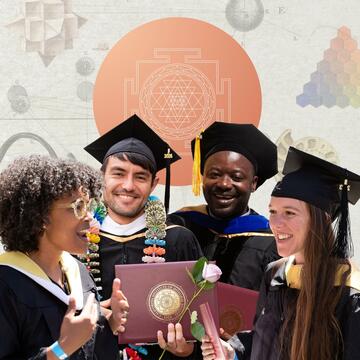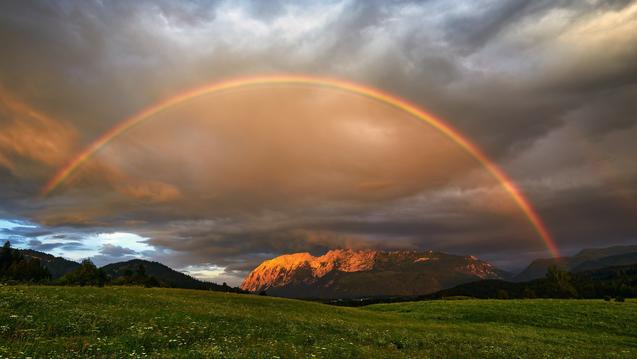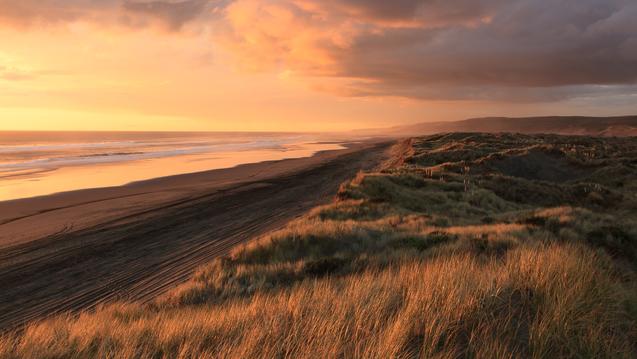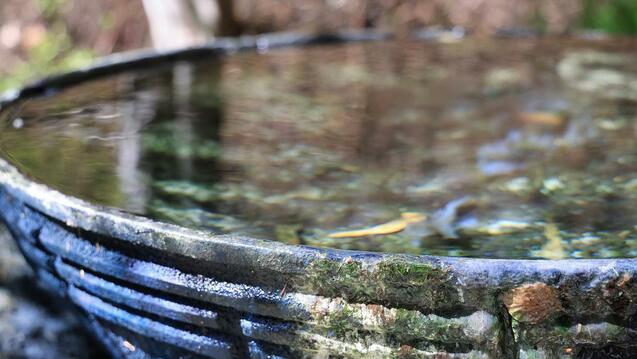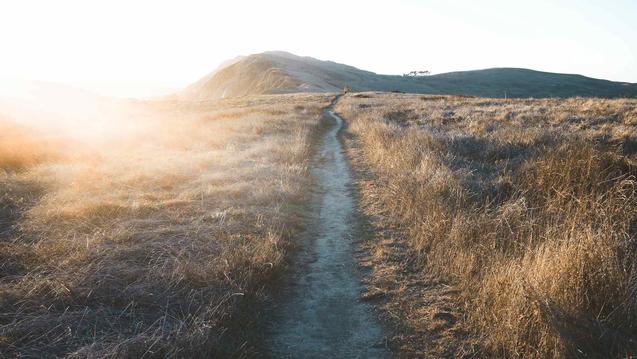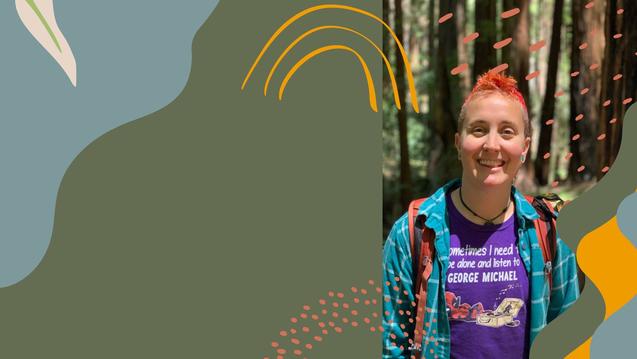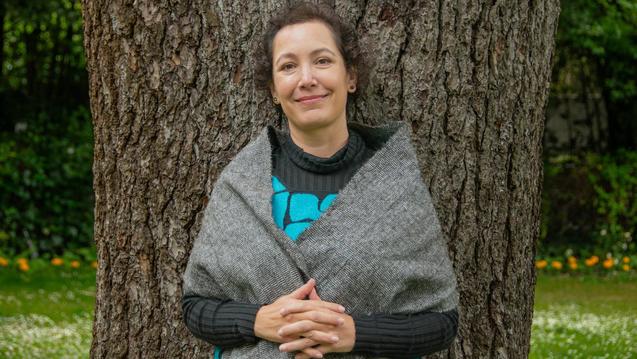An online conference with academic panels and discussions hosted by the Ecology, Spirituality, and Religion Program
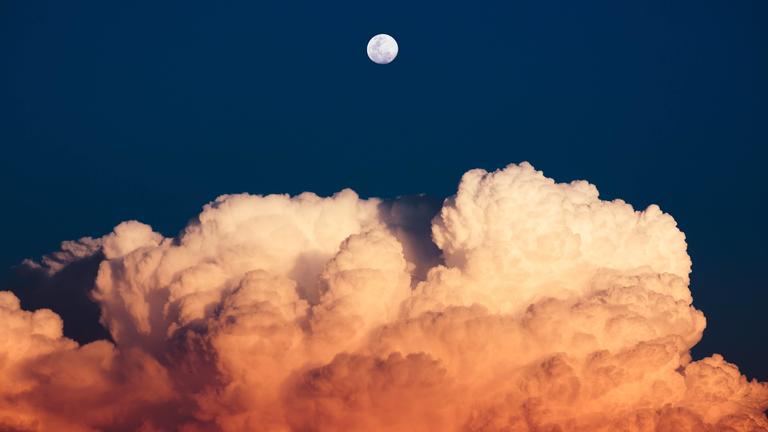
Department of Ecology, Spirituality, and Religion
A visionary graduate department exploring the intersections of nature, culture, and spirit
The field of Ecology and Religion aligns the power of religions and spiritual traditions to address our global ecological crisis through a purpose-driven lens of love, compassion, justice and community. We see a new generation of activists, scholars, and leaders with necessary skills and insight to transform practices and consciousness serving more just, sustainable, and flourishing future.
Our unique curriculum explores traditional cultures and emerging worldviews within a critically-informed methodological framework in order to help students understand, articulate, and address ecological trauma and transformation.
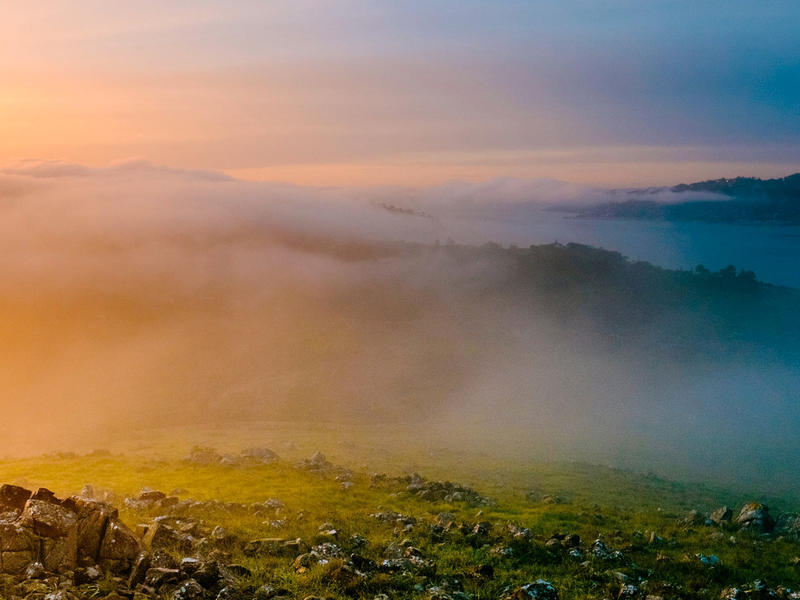

What the Mountains Teach
The Ecology, Spirituality, and Religion Department brought together a panel of experts, including Chair Elizabeth Allison, to discuss the sacred geographies of mountains, and how these sites of cultural history and power continue to serve as catalysts for ecological resistance and renewal.
Our programs allow students to cultivate the knowledge, skills, and wisdom to respond to existential threats and evolutionary challenges from integral and transdisciplinary perspectives.
We prepare our students to create new careers, cultivate change, and become pioneers of hope. In our programs, students develop deep familiarity with at least one religious tradition and specific ecological issue, and gain an understanding of the challenges – and opportunities – inherent to studying religion and ecology together.
Our Programs
Our graduate programs explore the roles that spirituality, philosophy, and religion play in generating and responding to ecological challenges.
For those seeking an embodied, engaged approach in which contemplative practice and career exploration complement rigorous study.
For interdisciplinary scholars who wish to engage in rigorous study of ecology and religion with faculty renowned for their cutting-edge approaches.
Faculty Research and Scholarship
Our innovative and diverse faculty work to shape the global dialogue linking spirituality, religion, and cosmology with ecology and sustainability through research on environmental ethics, evolutionary cosmology, and more.
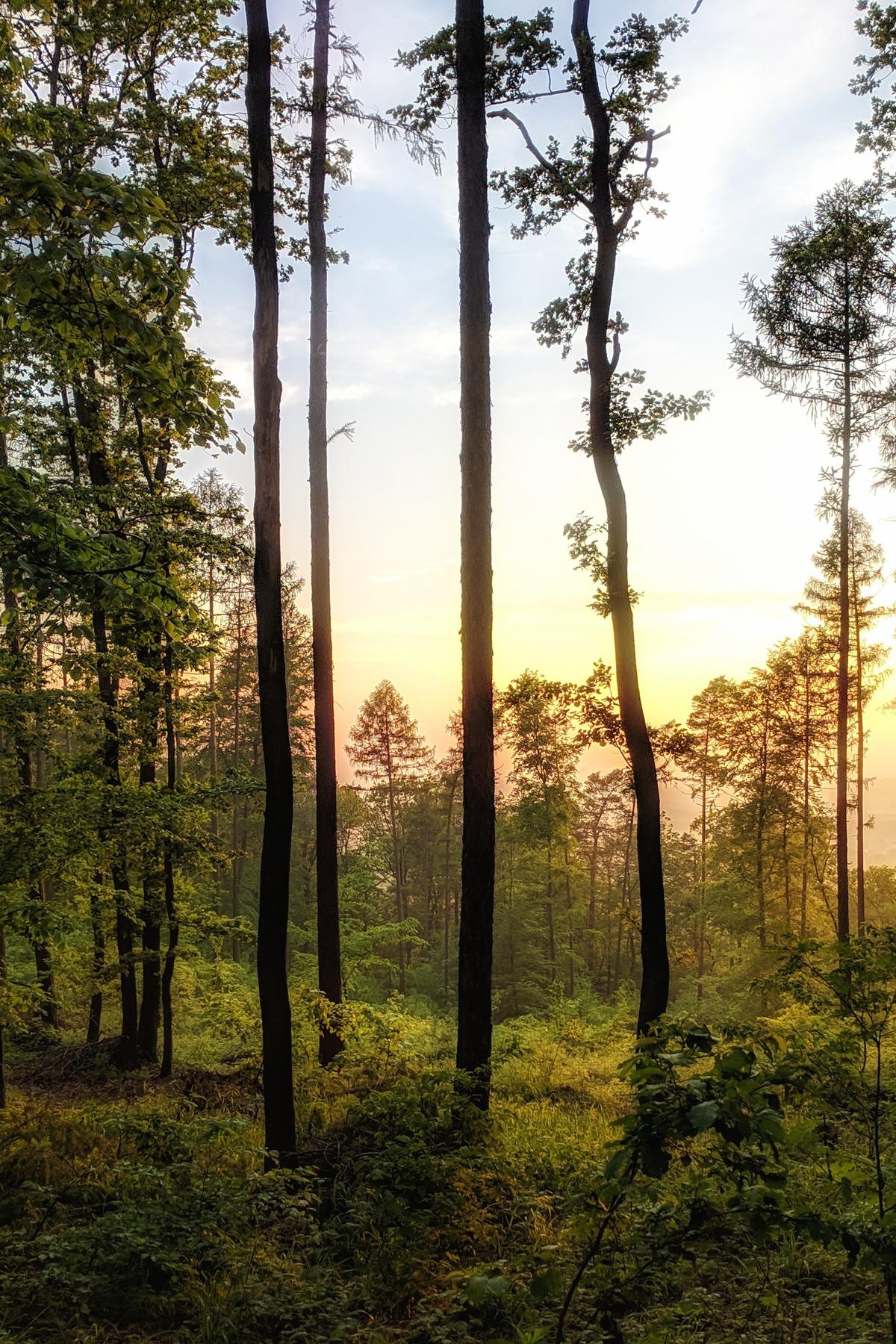
On Finding The Mother Tree
In this epsidoe of the CIIS Public Programs podcast, scholar and adjunct faculty Laura Pustarfi and author Suzanne Simard discuss the new book Finding the Mother Tree: Discovering the Wisdom of the Forest. Simard is a pioneer on the frontier of plant communication and intelligence and hailed as a scientist who conveys complex, technical ideas in ways that are dazzling and profound. Enjoy this conversation about her life, her work, and her recent book

A Panel on Sacred Mountains
"Mountains provoke a quintessential human urge to both define and be defined by the land in which we emerge". In this panel co-hosted by the Philosophy, Cosmology and Consciousness programs, CIIS affiliated faculty and scholars tie in myth, culture, history and tradition to explore the psychological and ecological implications of sacred mountains.
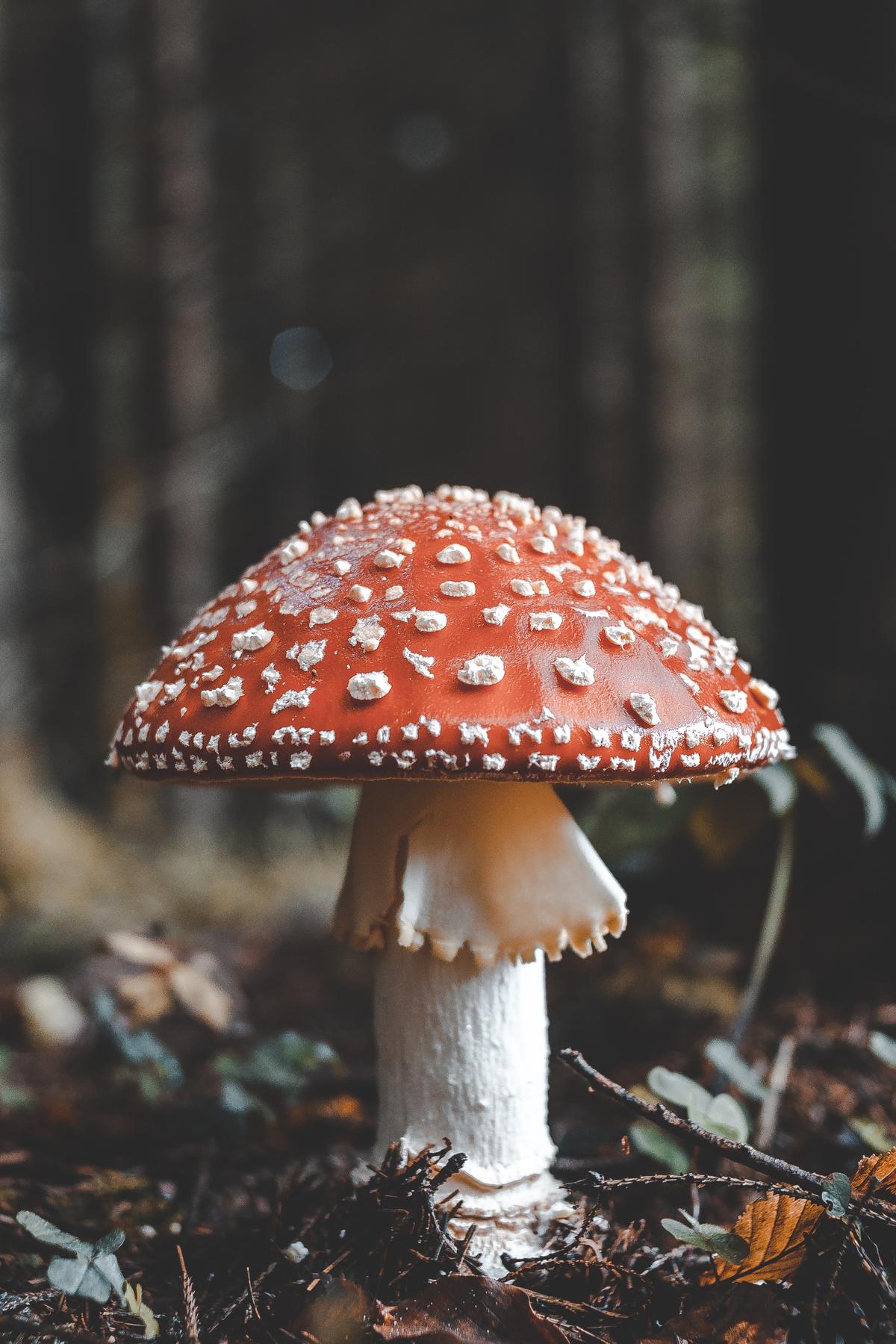
How Fungi Make our Worlds and Shape our Futures
Merlin Sheldrake, biologist and author of the bestselling book Entangled Life joins chair Elizabehth Allison for an illuminating conversation about these extraordinary organisms and our relationships with them can change our understanding of the planet on which we live, and the ways that we think, feel, and behave.
FAQs
-
A degree in Ecology, Spirituality and Religion will prepare you for the following careers:
- Teaching in academia
- Writing (journalism, novel, or nonfiction)
- Work with Non-governmental organizations (NGOs)
- Create your own non-profits
- Creatively jump-start current careers, integrating ecological or spiritual models and methods
- Ecological grief counseling work
Your studies will give you a broad understanding of the role of worldviews in the environmental crisis and of the prospects for change. You will be able to work toward greater sustainability through shifts in consciousness. You will generate new tools for addressing ecological devastation at personal and collective levels. You will have the ability to integrate multiple perspectives into your work, including those employed in environmental studies, religious studies, social sciences, and policy. You will create new careers, cultivating voices of change, pioneers of hope, and prophets of a planetary civilization.
-
The Ecology, Spirituality, and Religion department at CIIS launched entirely online master's and Ph.D. programs in Fall of 2021. Students can now earn a graduate degree in Ecology, Spirituality, and Religion from anywhere on Earth.
-
The Doctor of Philosophy and Religion with a concentration in Ecology, Spirituality, and Religion at CIIS requires:
- 36 units of online coursework, which take two years of full-time study;
- Two comprehensive exams, which take one year;
- A dissertation proposal, which takes one semester;
- And a dissertation and dissertation defense, which take between one semester and two years.
Therefore, the average degree takes between four and six years.
-
The Master of Arts in Philosophy and Religion with a concentration in Ecology, Spirituality, and Religion at CIIS requires 36 units of online coursework.
If students attend full-time (a course load of nine units each semester) this online degree takes two years. In lieu of a thesis, students take an Integrative Seminar during their final spring semester.
-
People who are interested in the intersection of ecology and spirituality, as well as those who have an interest in the emerging field of religion and ecology, apply to this program.
Students who wish to engage in cutting-edge research on some of the most important issues humans and the Earth community currently face (climate change, species extinction, water scarcity, biodiversity loss, ocean acidification, ethnic and cultural apartheid, etc.), using interdisciplinary and transdisciplinary methods, will find our program to be a supportive learning environment.
CIIS students are generally interested in the intersections of academics and activism and of social justice and diversity, and in how transformative inquiry, holistic learning, and academic rigor are integrated with spirituality.
Students in the program will develop their skills in critical thinking, public speaking, communication, research, teaching, writing, and creativity. CIIS offers a supportive learning environment and strives towards diversity and inclusion.
-
We would love to help you learn more about our online Ph.D. or master's in Ecology, Spirituality, and Religion.
The best first step is to attend an info session. If you would like to connect with a student or graduate, or visit a class, please contact our admissions counselor, or our program coordinator; they will help set that up.
You may also want to check out our YouTube channel or our Facebook page.
-
Classes tend to be small, ranging from 5 to 30 students per class. Many courses are a combination of lecture, question and answer, and dialogue. CIIS prides itself in integral learning and works towards offering an inclusive learning environment to students.
-
Generally, each hour spent in class generates three hours of homework. Therefore, if you are taking nine units per semester, you can expect to spend 36 hours on home reading and writing assignments.
-
Our program does not require a GRE or similar entrance exam.
-
Selection is dependent on demonstrated commitment to and experience with the topics and issues addressed in the our program, along with a good academic record and strong writing skills. Applicants do not necessarily have an undergraduate degree in environmental studies, religious studies, philosophy, or the humanities, but one's success in the program and ability to grasp content might be strengthened if these have been part of your studies.
For Ph.D. students, it is essential that the applicant's proposed dissertation research be in an area that is congruent with the expertise of the faculty in the program.
-
Our fall semester begins mid-August and our spring semester begins mid-January. We begin accepting applications for the fall in November and for the spring in September. We recommended that you submit all application materials at least two weeks before the priority deadline. The deadlines vary from year to year and are earlier for international students than for students from the US. After the priority deadline, we accept applications on a rolling basis.
For more information on application policies, requirements, and deadlines, please visit the CIIS Apply page.
Our Upcoming Events
A Free Online Overview with Jennifer Gruczelak, Nikole Moffett and Dennis Spears
A Faculty-Led Info Session with Charles Forbes


Our Department in Action
The 7th Annual Religion and Ecology Summit will celebrate the sacred waters of the world.
Recent Ecology, Spirituality and Religion grad on queering the outdoors


